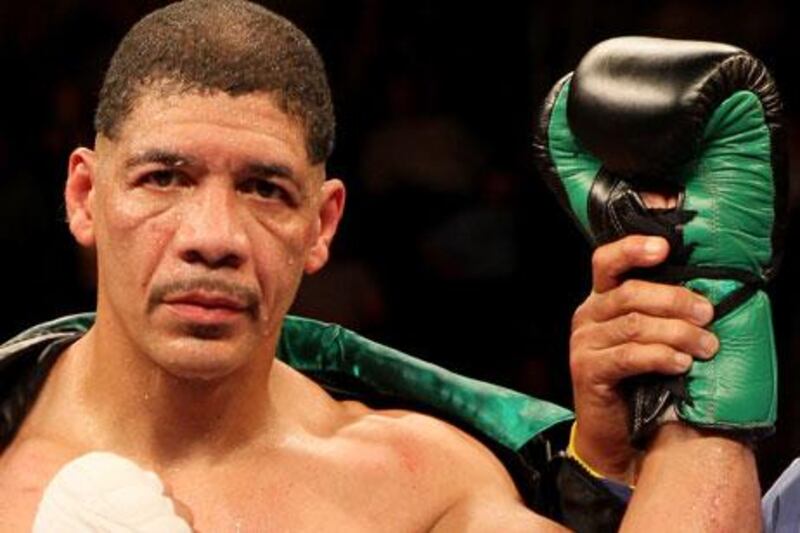"I am not a role model," Charles Barkley infamously said.
What he meant was, the title should never be conferred on celebrity athletes because they run faster, jump higher, aim or propel a ball better than the rest of us.
Today, we introduce you to seven sportsmen and women whose actions and conduct on American soil this year exemplify the human spirit at its finest.
Their courage, generosity and persistence against the odds might inspire us to apply the same principles to our own lives.
Which, you might say, is the very definition of role model.
Eric LeGrand
In late 2010, the Rutgers University football player lay helpless on the field after making a tackle. Vertebrae were fractured. The spinal cord was damaged. Paralysis below the neck had set in.
A year later, LeGrand steered his motorised wheelchair on to the same field, trailed by the charging Rutgers team. Defying doctors' expectations that he would be a quadriplegic and need a respirator for life, he is able to stand for short periods, works as a football radio analyst and is pursuing his college degree online.
Talk about a comeback.
Dewey Bozella
Bozella had a legitimate excuse for not making his pro boxing debut until age 52. He was locked up for 26 years, convicted of a murder that the courts finally decided he did not commit.
Pumped up from a telephone call from US President Barack Obama before the bout, Bozella won a unanimous decision. Then the man who earned two degrees while behind bars retired from the sport at 1-0 to devote his time with his foundation for youngsters, who will learn how boxing can keep them on the right path.
Perfect.
Pat Summitt
The winningest college basketball coach of either gender was diagnosed with early-onset Alzheimer's disease. Though showing signs of dementia, Summitt returned for a 38th season with the University of Tennessee women's team, knowing that her infirmities would be exposed to the public. She chose to put a familiar face on a disease about which little is known.
An outpouring of affection has greeted Summitt on team road trips. At one arena, fans waved towels that read, "We back Pat."
All of us have her back.
Ryo Ishikawa
A Japanese golfer who did much of his best work in the United States, Ishikawa displayed maturity beyond his age by pledging all earnings from tournaments this year to benefit relief efforts in his native country, struck by an earthquake and tsunami.
Ishikawa, 20, failed to win an event for the first time as a pro, but still turned over US$1.66 million (Dh5.9m), which included an extra contribution for each birdie.
Many athletes are charitable.
Here is one, to borrow a phrase from another sport, who hit it out of the park.
Jarryd Wallace
When several surgeries and procedures failed to control a condition known as compartment syndrome in his right leg, the college-age middle-distance runner told doctors last year to amputate. Right after the decision, he began researching Paralympics record-holders and declared his name would be alongside theirs someday.
At only his third meet, the Parapan American Games in Mexico, Wallace shockingly won the 100 metres for below-the-knee amputees. In disabled athletics, where tales of bravery are common, Wallace's stands out for his unhesitating plunge into the sport - on one good leg.
Stacy Sykora
The three-time US Olympian, named the nation's premier indoor volleyballer last year, was off to a solid start when her club team's bus overturned in Brazil. She was treated in intensive care for severe trauma to the brain and placed into a medically induced coma.
Sykora, who needs no more accomplishments to validate her career, began training again in November, seven months after the accident, hoping to qualify for one more Olympics.
How could you not dig that?
Tim Tebow
Last weekend, the Denver Broncos quarterback flew a high-school player, whose leg was amputated after a game injury led to complications, and his family as his guests to the Broncos' game in Buffalo.
This was no one-and-done gesture. Through his foundation, Tebow has invited families undergoing medical hardships on his dime to games each week. He meets them, offering gifts and sideline passes.
After Denver's loss to the Patriots, Tebow would have no my-day-is-ruined talk. "What matters is the girl I'm about to see," he said of a 22-year-old survivor of a brain tumour. "If I can inspire hope in someone, then it's still a good day."
...
So there you are: A magnificent seven worth emulating, even Charles Barkley would agree. In fact, on a much smaller scale - upon which he can now stand to weigh himself without breaking it - Barkley himself has become a role model.
The former NBA virtuoso has shed nearly half of the 100 pounds packed on since retirement, primarily by eating vegetables, which he once avoided as if they were a vow of silence.
Go ahead, Sir Charles. Accept the role - but not the buttery sweet roll - of model. It can be achieved, even in the often sordid, self-centred world of sports.





